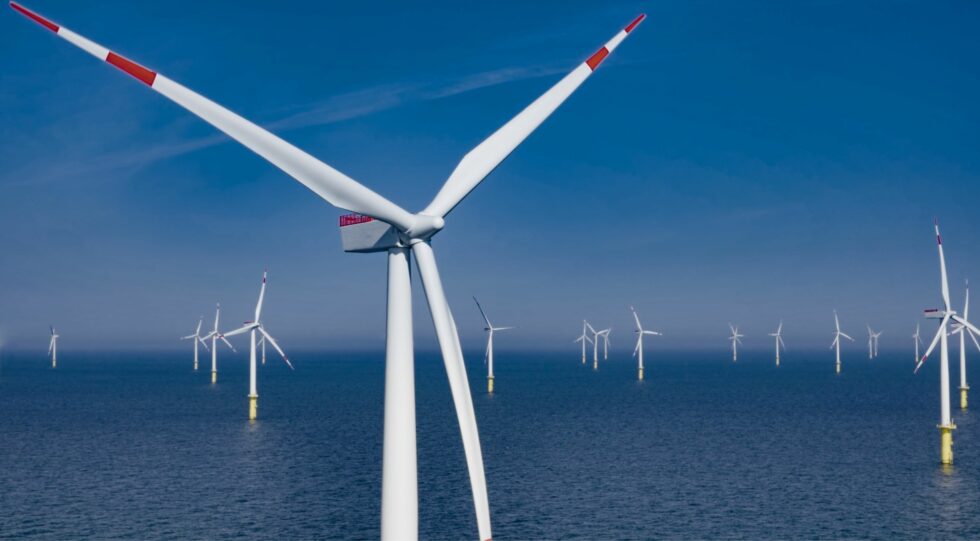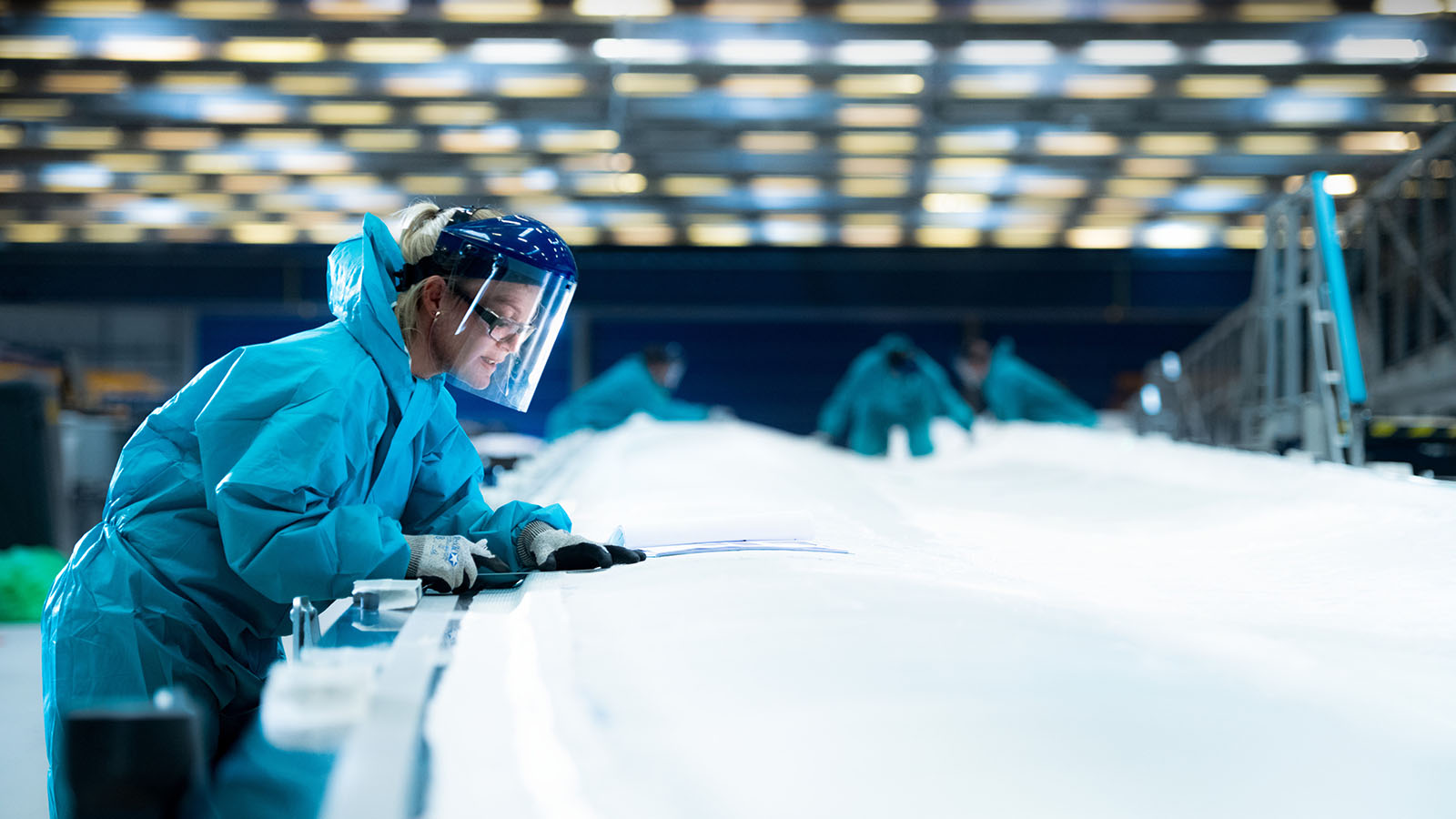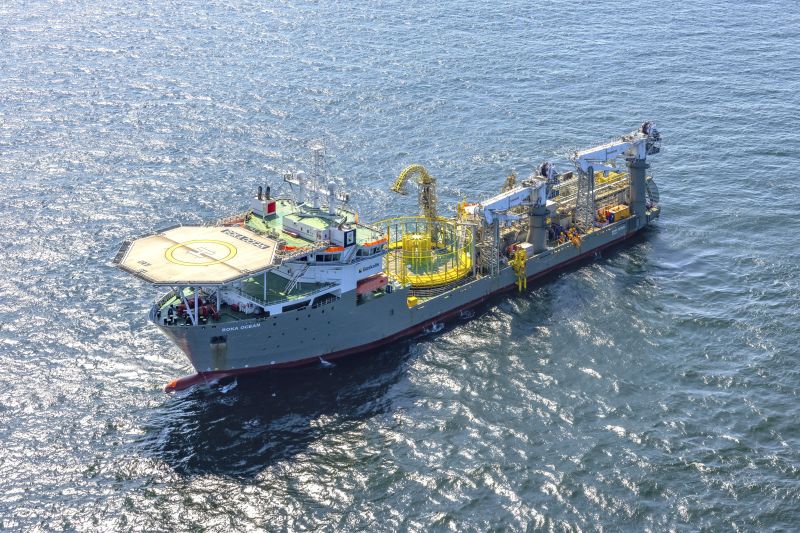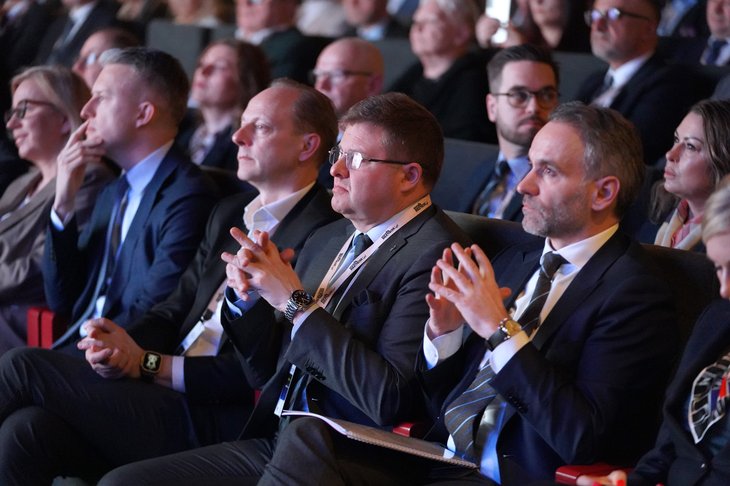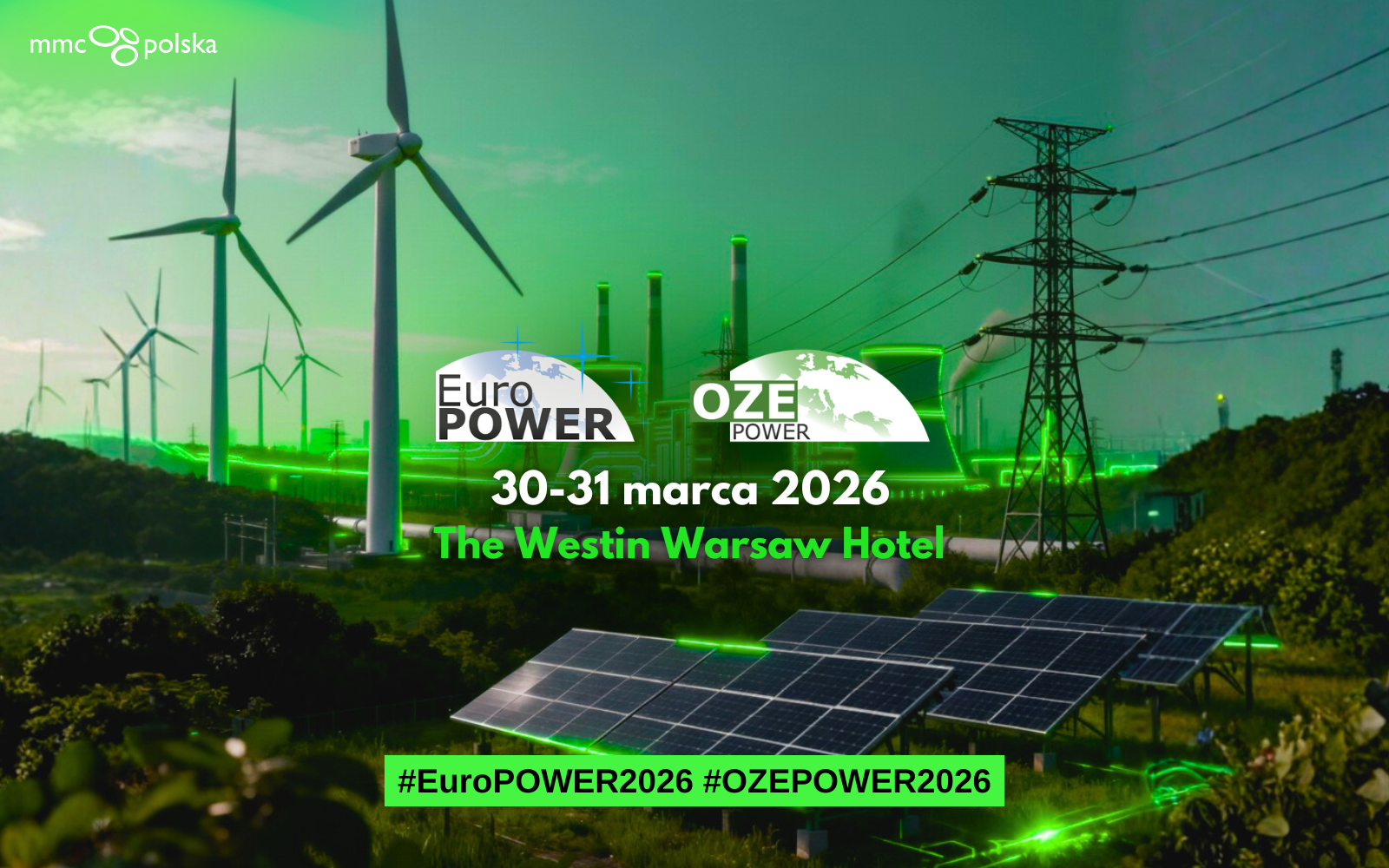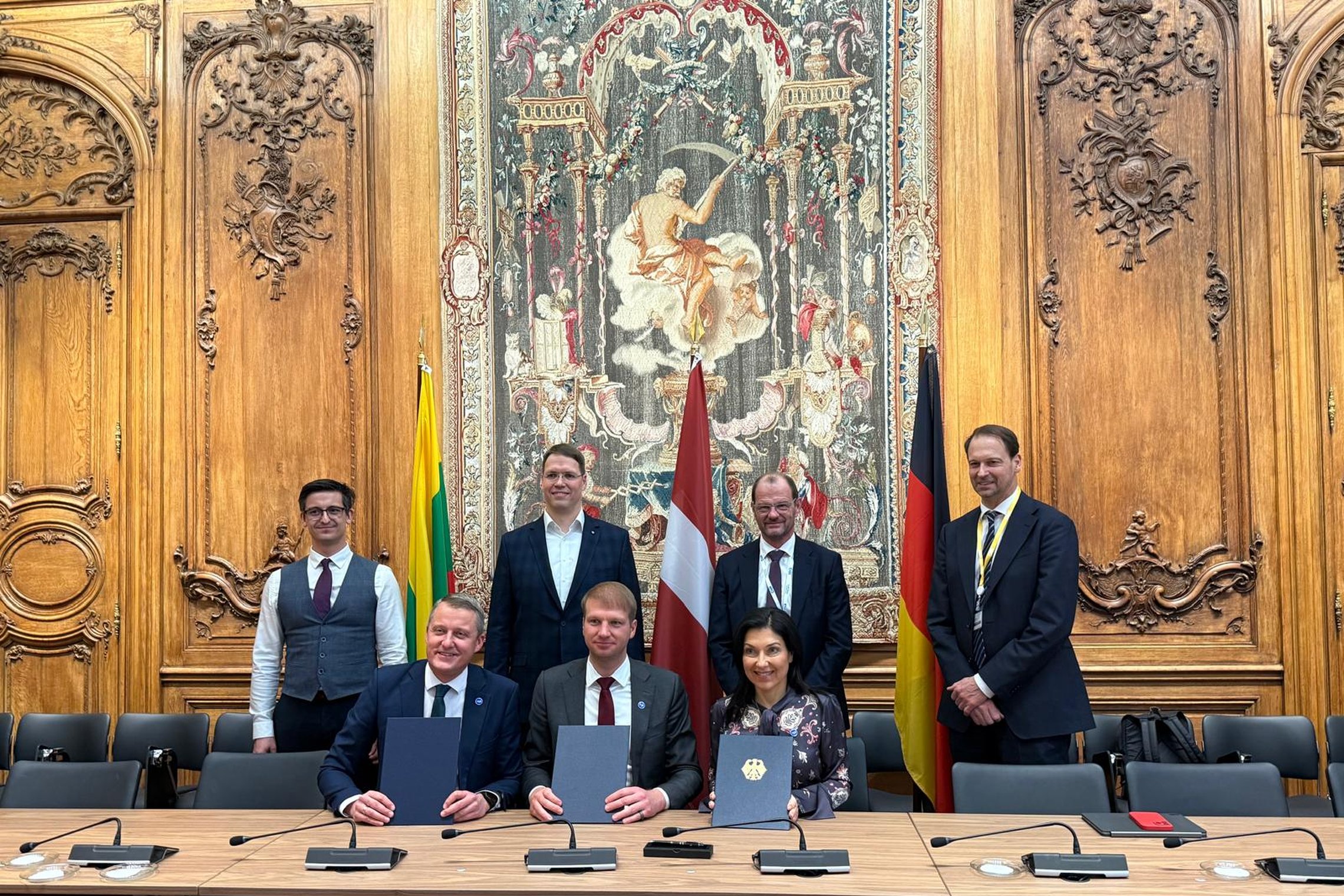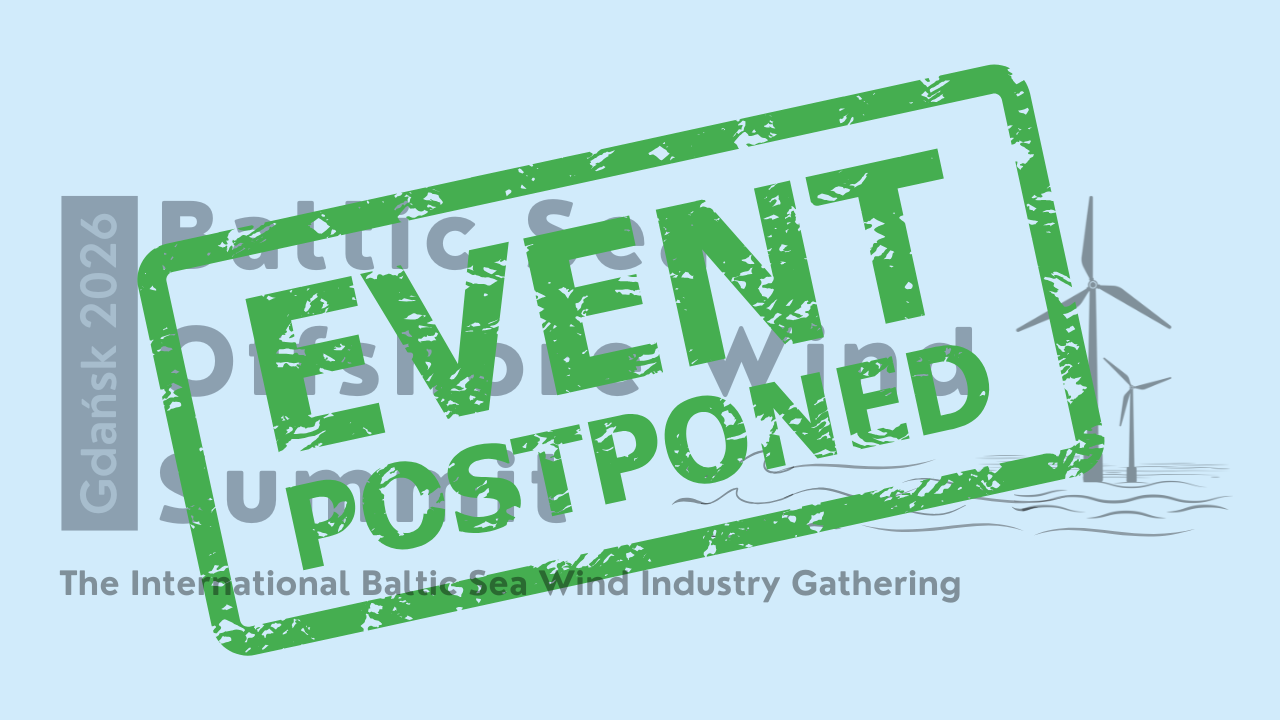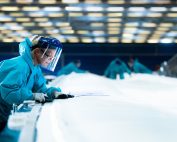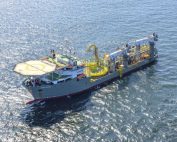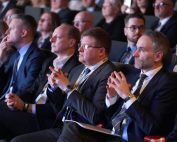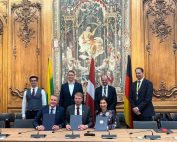Building on a successful partnership on tower feet and lifting guidelines, Siemens Gamesa and Vestas – with Energy Cluster Denmark as facilitator – have signed a new partnership agreement to increase standardisation in the wind industry. Initially, the parties will standardise tower transportation equipment.
Currently, whenever a wind turbine tower is shipped out for offshore installation, the manufacturer welds a box onto the installation vessel to which the tower is then clamped. The process is costly in terms of tons of iron and labour on the quayside.
Once installation offshore is completed, all the equipment is removed from the vessel, which is again costly in terms of hours, money and the green transition. Jesper Møller, Chief Engineer, Offshore Execution at Siemens Gamesa Renewable Energy, explains. He has just signed a partnership agreement with the industry competitor Vestas – an agreement that, among other things, is about standardising equipment currently unique to each of these manufacturers.
“In 2027, there will be far too many offshore wind farm projects on the drawing board relative to the number of installation vessels available. This presents difficulties for the green transition, for us as manufacturers and indeed for our entire value and supply chain. That is why we have chosen to enter into a new partnership with Vestas to optimise the cost-intensive equipment each of our companies delivers today. Standardisation will allow us quite simply to ship out more turbine parts faster,” says Jesper Møller.
Common industry standards are common sense
The new partnership agreement comprises a series of projects involving equipment for and the storage of huge components produced by wind turbine manufacturers. The first project is about so-called sea fastening – fixing towers, blades and nacelles to installation vessels.
“Standardisation is a natural step to take in maturing any industry. Our wind industry supply chains are no exception. It makes perfect sense for us to develop common standards so that we manufacturers do not have to take charge of large chunks of the logistics. By shifting more of our costs out into the value chain, we save money and boost our subcontractors’ business. Ultimately, standardisation is of benefit to the production of green power that everyone is asking us to deliver,” says Morten Baungaard Nielsen, Lead Project Manager, Global Supply Chain, Global Transport Readiness at Vestas, “Now we’re looking for people, companies, anyone willing to help us do things smarter – we are keen to engage in a dialogue with everyone in the wind industry value chains – including our competitors. We will collaborate with anyone who wants to make a collective, green difference with us,” adds Morten Baungaard Nielsen.
Innovative forces
Vestas, Siemens Gamesa and several subcontractors recently collaborated on common lifting equipment and tower base design – a process supported by Energy Cluster Denmark, which is again chosen to act as a facilitator in a broad-based collaboration in the wind industry.
“The major players chose us once again to support their collective efforts to optimise and industrialise the heavy logistical processes and value chains that are characteristic of the offshore wind industry. In the face of global competition, we seek consistently to boost innovative forces within the industry. The new collaborative agreement between Vestas and Siemens Gamesa is yet another excellent example of how we do this,” says Glenda Napier, CEO of Energy Cluster Denmark.
Source: Energy Cluster Denmark
